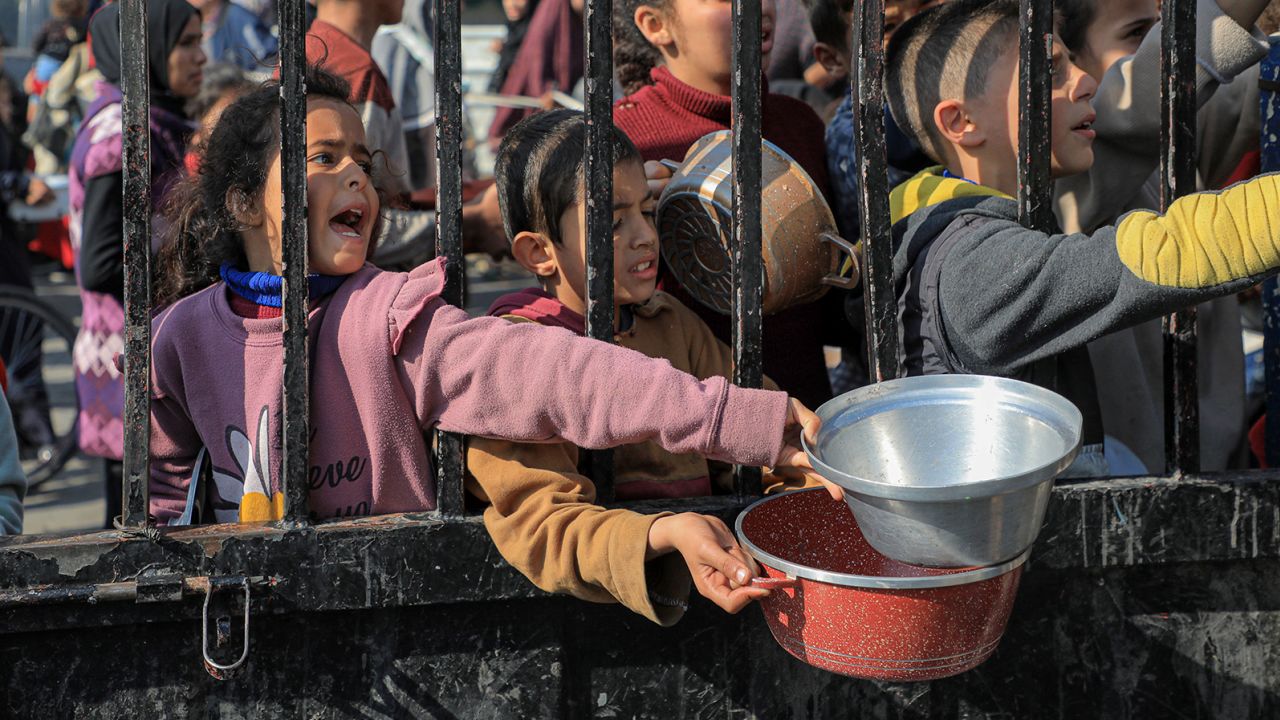
Chamberlains of London – Gaza now finds itself engulfed in a man-made famine, the result of extreme policies and a systematic blockade. Despite hundreds of aid trucks parked just outside the Strip, food has not reached the people who desperately need it. The UN-backed IPC reveals that over 500,000 Palestinians face starvation. These are not numbers on paper but real families, many of whom have seen children die from hunger. The IPC confirms that Gaza has crossed all three famine thresholds: starvation, acute malnutrition, and excessive mortality. Aid groups accuse Israel of deliberately blocking food shipments while pushing a new, militarized distribution system. Palestinians who try to collect food risk being shot. Gaza’s hunger crisis did not emerge overnight. It reflects years of blockade and recent policies that worsen the situation. The world watches while a preventable famine unfolds in real time. Humanitarian workers call for immediate, unrestricted access to prevent further loss of life.
Conditions in Gaza continue to deteriorate rapidly under policies that limit food access. The Israeli-imposed blockade tightened further in March 2025, triggering a near-total halt to goods entering the enclave. Though limited deliveries resumed in late May, Gaza residents now face a dangerous choice between hunger and risking their lives at militarized aid sites. The controversial Gaza Humanitarian Foundation operates just four food distribution points deep inside combat zones. Palestinians must walk for hours through dangerous areas just to receive small food parcels. Over 990 people have died near these zones while seeking aid. Most were shot, according to eyewitnesses and Gaza medics. Israel denies these claims, but evidence continues to surface. Aid groups say the system designed by Israel replaced over 400 previous UN distribution centers, making food access nearly impossible for most of Gaza’s population. Hunger is now weaponized, and Gaza’s population suffers under policies that punish the innocent while claiming to fight terrorism.
“Read about: Balut: The Filipino Delicacy That Terrifies Tourists Worldwide!”
International agencies confirm that Gaza has met all conditions required to declare famine. The IPC found that at least one in five households suffer from extreme food shortages. A third of Gaza’s children are acutely malnourished. Mortality rates are surging, with over 273 confirmed starvation deaths so far. Among them are 112 children. While Israel disputes these figures, humanitarian experts argue the monitoring system has collapsed. Many deaths go unrecorded. The IPC used expert analysis to conclude that famine exists even without full mortality data. Gaza hospitals report a surge in patients showing advanced symptoms of starvation. Images of emaciated children with distended stomachs haunt medical records. United Nations officials warn that this disaster is not a natural consequence of war but a result of political decisions. Gaza needs 600 aid trucks per day. Fewer than 300 are allowed entry. The UN calls the hunger crisis entirely man-made and urges immediate policy reversal to prevent further deaths.
“Read more: Yemen Strikes? Suspected Houthi Drone Attack Rocks Israeli City of Eilat”
Global leaders and humanitarian bodies have condemned Israel’s role in Gaza’s famine. The UN Secretary General demanded that Israel, as the occupying power, uphold its legal obligations to ensure access to food and medicine. Human rights chief Volker Türk labeled the use of starvation as a weapon a war crime. British officials joined the outcry, calling the crisis a man-made catastrophe caused by policy failure. Israel denies the claims and accuses the IPC of relying on inaccurate data. Yet multiple independent reports, including from the US, found no systematic aid diversion by Hamas. Most aid is looted by desperate civilians or small criminal groups. Meanwhile, Israel insists it has allowed sufficient aid and blames UN agencies for not distributing it. Aid workers argue the new distribution model is unworkable. Gaza remains starved not by chance, but by design. International voices grow louder in demanding unrestricted aid access and an end to punitive systems that target civilians.
As famine grips Gaza, Israel prepares for a new offensive into Gaza City. Tens of thousands of reservists have been called up for what officials say is the final push to defeat Hamas. This operation targets the very area where the IPC says famine has already taken hold. An estimated one million civilians could be displaced. Medical teams and aid organizations have been instructed to prepare for a mass evacuation. UN agencies express alarm that any new military campaign will make food distribution nearly impossible. Many vulnerable people, including the elderly and children, cannot move and will be trapped. Despite international pressure, Israel appears committed to its plan. Gaza City, already on the edge of collapse, could fall further into humanitarian ruin. The invasion, framed as necessary for security, risks deepening an already catastrophic situation. In Gaza, hunger, displacement, and death are converging, creating a humanitarian crisis of historic proportions.
This article is sourced from www.bbc.com and for more details you can read at chamberlainsoflondon
Writer: Sarah Azhari
Editor: Anisa